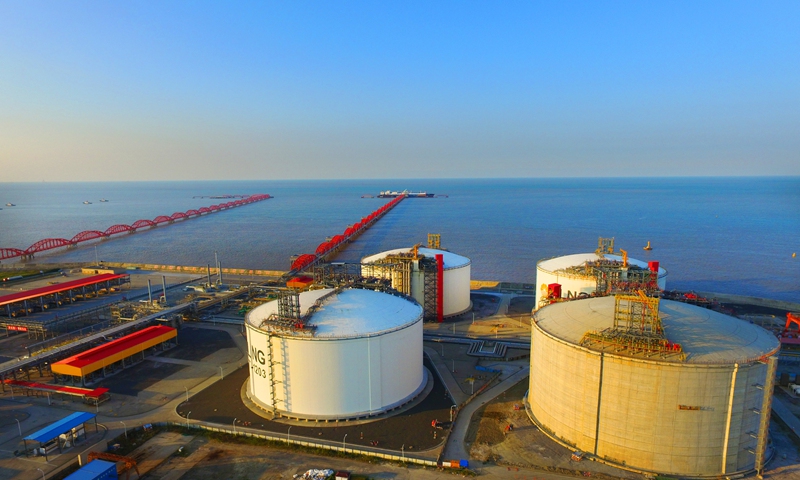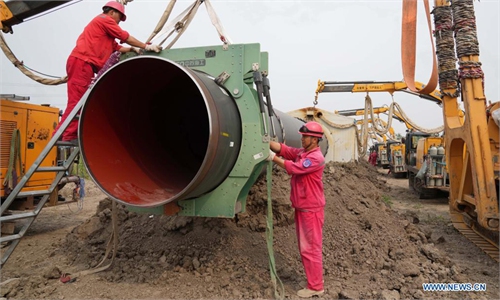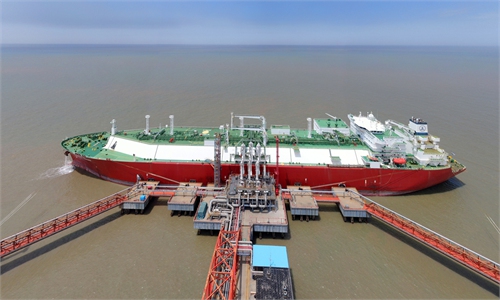
Photo shows the Jiangsu LNG Project of China National Petroleum Corporation at Yangkou Port, East China's Jiangsu Province. Photo: VCG
Australia is set to suffer great losses in its energy trade with China, as China now reportedly seeks to lock in long-term liquefied natural gas (LNG) supplies from the US, following the recent power crunch caused by surging coal prices.
At least five Chinese firms, including oil giant Sinopec Corp and China National Offshore Oil Co (CNOOC), are in discussions with US exporters, mainly Cheniere Energy and Venture Global, about potential LNG deals, Reuters reported, citing anonymous sources.
Sinopec alone could be eyeing 4 million tons annually, the report said.
If the reported deals were to materialize, Australia, a main LNG supplier for China, will stand to lose, analysts said.
"It is obvious that Australia suffered great losses as an energy source for China," Lin Boqiang, director of the China Center for Energy Economics Research at Xiamen University, told the Global Times on Sunday.
As diplomatic tension has a big impact on trade, "it is natural for China to diversify LNG imports, for example, buying more from the US after its relations with Australia froze," Lin noted.
According to statistics from Chinese customs, China imported 5.4 million tons of LNG from the US from January to August, skyrocketing 375 percent compared with the same period in 2020.
By comparison, China bought 20.5 million tons of LNG from Australia in the first eight months, similar to the level of 19.1 million tons last year.
Sinopec and CNOOC did not respond to requests from the Global Times for comment on Sunday. But the stronger LNG purchasing power could be reflected from the high spot pricing index for LNG imports by Chinese energy trading center Shanghai Petroleum and Natural Gas Exchange.
From October 4-10, the index hit a record high for the period at 139.58, growing 90.42 percent year-on-year.
Lin said that the reported LNG deals may be related to the phase one trade deal between China and the US because China promised to import more energy products.
Under the phase one deal, China would increase energy imports from the US, including LNG, crude oil, refined products and coal, by $52.4 billion over two years on top of the 2017 baseline.
Following recent power shortages, China is seeking to diversify its energy supplies even as the country pushes forward efforts to reach ambitious carbon neutrality goals by carrying out major clean energy projects.
LNG, boasting ease and safety of non-pressurized storage or transport, is regarded as a more essential source of clean energy.
What Australia lost is not only LNG deals. A manager from the Shenyang Huayue Foreign Economic and Trade Co told the Global Times previously that the firm has been importing more US beef to replace Australian beef due to frayed China-Australia ties.


